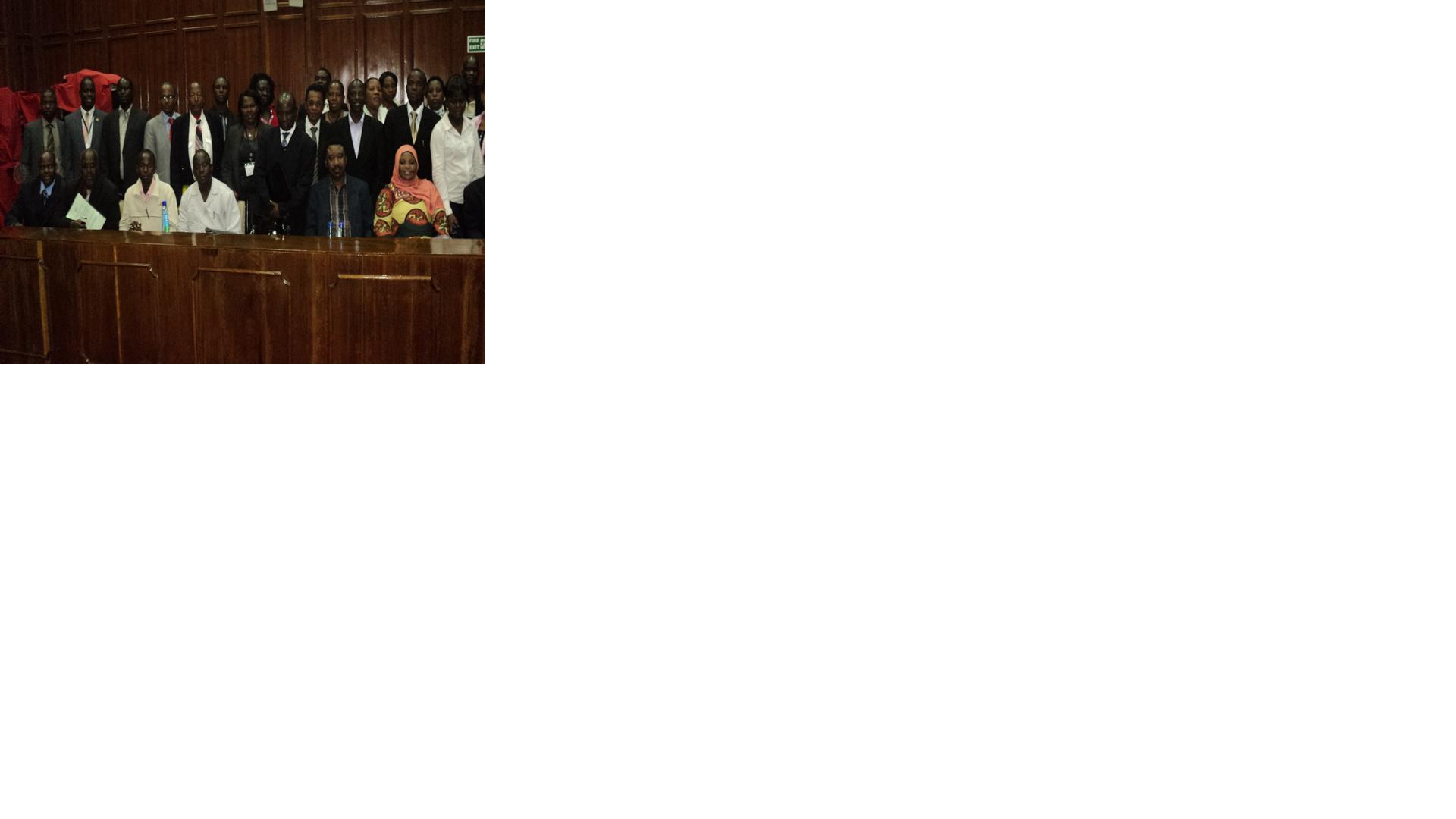Little political will for agri-development worrisome
26/4/2012
Holistic land use policy needed in EAC
The fact that countries have failed to adhere to Maputo Declaration of 2003 is a show of lack of political commitment by governments to move agriculture to higher levels.
This came up in a recent dialogue interaction between the East and Southern African Farmers’ Forum (ESAFF) and members of agricultural and natural resources committees of the East African Legislative Assembly.
A major source of worry among participants was the feeling that political willingness to capitalize agriculture is doubtful, in which case the recommendation followed that governments should increase agriculture budgets to the committed 10% of their national budgets as per Maputo Declaration of 2003 and the Sirte Declaration.
“The fact that countries have failed to adhere to this commitment for almost 10 years raises doubt on the political willingness to capitalize the sector. In addition, at the moment, development partners fund over 80 percent of agricultural development programs in the region,” the report intoned.
There is a need for EAC governments to aggressively plan to achieve the CAADP budget target while relying only on domestic sources for the sake of sustainability, they urged, taking a considerably different perspective on agricultural development in comparison with current practices.
“Furthermore, another problem related to agricultural financing is degree of actual budget execution which has historically been low,” participants pointed out, noting also that the average rate of disbursement of agricultural budgets has been distinctly lower than the rate of overall budget execution, which for most countries is about 80 percent or lower. “Therefore efforts to increase agricultural funding under CAADP will have to address constraints to effective budget execution, which appears to be a general problem, though not specific to the agricultural sector.”
Examining the role of civil society in CAADP implementation, the dialogue preparatory report noted that while on the one hand it is very important to meet CAADP targets so as to fast-track agricultural development across the continent. “It is equally important that the funds are allocated and utilized appropriately and effectively,” the report said adding that meeting such a challenge is only possible by enhancing transparency through adhering to one of the core principles of CAADP of stakeholders’ participation.
“National governments should actively engage civil society organizations, farmer organizations, private sector organizations and society in the formulation, implementation and tracking of government programs on agriculture,” the dialogue platform insisted.
The dialogue also sought ways to ensure protection of smallholder farmers against the economic giants, citing it as one of the major challenges in CAADP, that is, the speed and scale of agricultural transformation processes that jeopardizes the very existence of small scale farmers.
“CAADP investment plans do not clearly indicate how smallholder farmers will be protected against land grabbing incidences that are likely to happen as result of investment in agriculture,” it specified.
It pointed out that access, use and ownership of land and other natural resources including water and forestry resources should be ensured for smallholder farmers. “If the issues of proper land planning and sustainable natural resources management are not carefully handled to meet present and future needs of small scale farmers and future generation, social conflicts particularly between farming communities and investors be they foreign or local are likely to emerge,” following allocation of lands that have been used by farmers for so many years for investment, the platform position cautioned.
Minimizing institutional crisis showing up in a number of countries was similarly a priority issue for participants, saying it is likely to affect implementation of CAADP due to the fact that management of the agriculture sector is constituted in a ministry in each country.
“Agricultural activities are spread in different ministries and agencies.” For this reason, the EAC was asked to define “agriculture” taking into consideration the broad definition of the agriculture sector as per UN Classification of Functions of Government (COFOG), and as used in the IMF’s Government Finance Statistics (GFS) Manual. “In this definition, components of agriculture are identified as crops, livestock, fishery and forestry. This should go hand in hand with establishing an agricultural common policy (CAP),” the farmers’ group underlined.
Land resource development was another key concern, with the premise that land is a basic resource in agricultural production, and thus its utilization has to be made optimal. “As such EAC should have proper land use planning at regional and national levels,” the farmers’ group appealed, saying that without it, there is a danger for increased conflicts between crop producers and livestock keepers, “and are as suitable for food production may be put under construction of commercial and residential buildings.”
The report notes that participants said indiscriminate use of land jeopardizes food production for the future generation.
“We propose that detailed soil mapping and land use classification be undertaken and protected by law. Of course the cost of surveying such a vast area and preparation of land use/cover maps is very high,” the platform report admits. “This is an important step in modernizing agriculture, and in transforming traditional pastoralists to modern livestock keepers.”
The use of conventional cadastral survey is slow and inefficient, in which case it will be necessary to apply faster but more expensive modern technologies such as Global Positioning System (GPS), and Geographical Information System (GIS), it urged.























